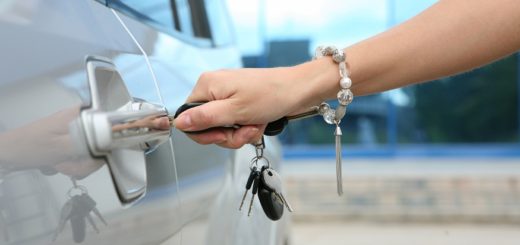How to Start Forex Trading in Dubai, UAE

Based in the UAE and want to become a forex trader? You’re in the right place. The region is home to a large handful of online forex trading brokers that allow you to access the global markets. But before diving in head first, you know what you’re doing.
If you’re looking to become a forex trader but not sure exactly where or how to get started, this guide is for you. To become a forex trader, you’ll need to take some active steps before you’re able to place your first trade. Even then, becoming successful takes time and dedication.
In short, you’ll need to choose a forex trading broker, open your own personal account with them, develop a strategy, learn the fundamentals, and then start navigating your way around your chosen platform and the global markets.
It seems simple enough; however, there’s still a little bit more to it than that if you really want to become a serious trader. Here’s a detailed guide from FX Newsroom about everything you need to know in order to become a forex trader in Dubai.
Step 1: Choose a broker
First things first. To become a forex trader, you’ll need to register with a forex CFD broker. If you’re looking for a local broker, you’re in luck. Dubai is home to dozens of locally based and locally regulated brokers offering competitive trading conditions. If you’re looking for the top brokers in the UAE, you can check out our Top UAE Brokers List, showing you Dubai’s best CFD trading brokers.
Consider choosing a forex broker that’s regulated by any of the UAE’s 3 financial regulators. This includes the Securities and Commodities Authority (SCA), the Dubai Financial Services Authority (DFSA), or the Financial Services Regulatory Authority (FSRA).
Why choose a regulated forex trading broker? It can provide peace of mind that your funds are being managed properly in segregated client accounts and that your broker is operating ethically and according to local UAE laws.
Another thing to look out for when choosing a broker should be their trading conditions. As a trader, you should be looking for optimal conditions that will support your trading rather than hinder it. Look for low spreads and commissions, advanced platforms and trading tools, fast trading execution, strong liquidity, and a range of instruments to trade.
For a more detailed guide about what to consider when choosing a broker in the UAE, read this article.
Open an account
Once you’ve filtered through and chosen a forex CFD broker you’re comfortable with, you’ll need to create your actual trading account. Most of the top brokers in Dubai have developed an easy online signing-up process from their website.
But due to local regulations and the checks that are required, the entire process can take anywhere from a couple of hours to a full day, depending on the broker’s speed of conducting its verification checks.
Be prepared to submit your KYC (Know Your Customer) documents, including a proof of identity and proof of address document. You might also be asked to submit information about your income, previous forex trading experience, and a selfie. And don’t forget about agreeing to the broker’s terms and conditions.
You might see multiple different account types offered by brokers when you visit their accounts page. Don’t panic. Brokers usually offer different accounts for traders of different experience levels and varying trading goals. The plans might differ in terms of commissions and spreads, platform offering, asset to trade, leverage, minimum deposit amounts, and added extras. Read through your broker’s account types and choose one that aligns with your preferences.
Practice on demo
Before heading straight into a live trading account where your capital will be at risk. It might be wise to practice first on a demo account, especially if it’s your first time trading.
A demo account allows you to trade in a practice environment with real market conditions but with fake funds provided by the broker. Oftentimes, you can open a demo account with anywhere from $1000 to $100,000 in fake funds to start demo trading.
Don’t think that your time on a demo account will go wasted. It can give you time to understand how the forex market works, develop a strategy, and work on your trading psychology.
It also allows you to make the mistakes that all beginner traders inevitably make, providing you with valuable lessons about building your trading experience and allowing you to make those mistakes in a risk-free environment.
Build a trading plan
You can’t trade without a strategy. Every trader should take time to practice and perfect a reliable trading strategy that makes sense to them. Your strategy will guide what instruments you trade, what time you trade them, what technical indicators you’re looking for, and so much more.
A quick Google search of the best trading strategies will return thousands of results. This is where you need to take the time to practice in a demo account to see exactly which strategy makes sense to you.
Remember that just because it works for someone else doesn’t mean that it will work for you.
During this stage, you’ll need to dive deeper into technical and/or fundamental analysis, which forms the base of most trading strategies.
Technical analysis looks at price movements and trends to try and predict where an instrument’s price may be heading. Meanwhile, fundamental analysis looks at real-world events and how they can impact the forex market. For example, fundamental traders may trade the forex market based on events like important data releases such as the U.S. consumer price index, trading based on how markets expect the predicted results to turn out.
No trading plan is perfect. And if you find one that claims to have a 100% win rate, don’t fall for it. This is where you will need to develop, practice, and build your experience to understand the forex market and price movements on a deeper level.
You can also find our starter guides useful for gaining a deeper understanding of technical and fundamental analysis.
Switch to a real account once you’re ready
Once you’ve built up your experience as a forex trader and you’ve become consistently profitable on a demo account, it may be time to consider making the jump to a live trading account.
As we mentioned earlier, this means you’ll be risking real money in real markets.
Remember that while demo accounts are great for building experience, the only criticism of this account is that it can’t teach you about the prospect of losing real money since demo accounts are essentially risk-free.
Many traders learn this the hard way when they start trading on a real account, often losing their accounts even if they were consistently profitable on a demo account. To avoid this, remember to always manage your risk and stay consistent with your trading plan.
Conclusion
Making the choice to get started as a forex trader in the UAE isn’t super complicated, but becoming a successful one can take longer than you might think.
You can follow the right steps to set yourself up for success, like finding a trusted and regulated forex CFD broker, practicing on a demo, taking time to learn about the markets, and mastering a strategy. But remember that forex trading also demands discipline, patience, and the right mindset.


